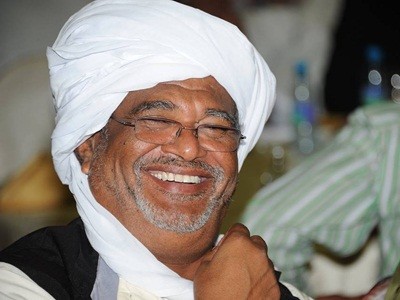Even If We Start from the Dog

By Dr. Abdel Latif Al-Bouni
One of the most significant economic developments in Sudan happened without notable intervention from the state or even from organized private sectors. Rather, it was the result of individual efforts by ordinary people with limited capital. That’s why it occurred quietly, without media attention or noise. This is precisely what happened in the livestock sector in northern and central Sudan, especially in Al-Jazirah State—and particularly with cattle. All cattle there have now become crossbred. The small red cows that produced little milk have disappeared, replaced by dark-colored cows, black ones, and black-and-white cows (known locally as “barqaa”). As a result, returns from both meat and milk production have significantly increased. Raising cattle has now become a middle-class profession.
My son Ashraf, after completing his studies, chose to go straight into livestock farming—even though he had other options. He set up a cattle shed southeast of Khartoum, west of the American Embassy. He dedicated all his time to this profession, and in return, it provided for his livelihood. Over seven years, he managed to build up a highly crossbred herd with strong adaptability. His bulls were in high demand among his neighbors and acquaintances. His shed often hosted female cows ready for insemination—some brought all the way from Al-Jazirah State (a sort of “scholarship” program, if you will). Sometimes, his bulls would be hosted at neighbors’ sheds—”honeymoons,” in a sense.
Although Ashraf’s cattle weren’t directly attacked during the war in Khartoum—possibly due to their proximity to the U.S. Embassy—his situation was still negatively affected. He relocated his herd to our village in Al-Jazirah. But about a year later, specifically on November 14, 2024, the Rapid Support Forces (RSF) raided the village and looted it. His shed was stripped bare—emptier than the heart of Moses’s mother. Along with the cattle, they took his small truck (dafar), his cart, and even the smaller animals like sheep and goats he kept for leisure.
After returning from displacement, village conversations were dominated by what had happened during the looting. Whenever neighbors gathered, the main topic was always, “So, what did the RSF take from your place?” Ashraf’s three-year-old daughter Lujain, whenever she heard adults talking about the raids, would always chime in: “They didn’t take my father’s dog.” And indeed, the only thing the RSF left behind in his shed was the dog. This same scenario was repeated in nearly every shed in the village—and perhaps all of Al-Jazirah, except for the Managil locality, where the army was present.
Just as Lujain shined a light on her father’s dog, we want to shed light here on one of the greatest losses in Al-Jazirah during this war: the livestock wealth. The value of the livestock lost in Al-Jazirah is estimated in the billions of dollars. The magnitude of this loss becomes even more severe when we realize that it can’t be recovered in a year or two. Even if billions were available today, the specialized breeding that was wiped out can’t be restored quickly. It combined both artificial insemination and natural selection—a process that requires time.
The unseen losses of this war will become more apparent with time and will likely be beyond imagination. Yet, despite everything, we must trust in God and start again—even if we start, God willing, from the dog. And that, perhaps, is exactly what I told Ashraf.



